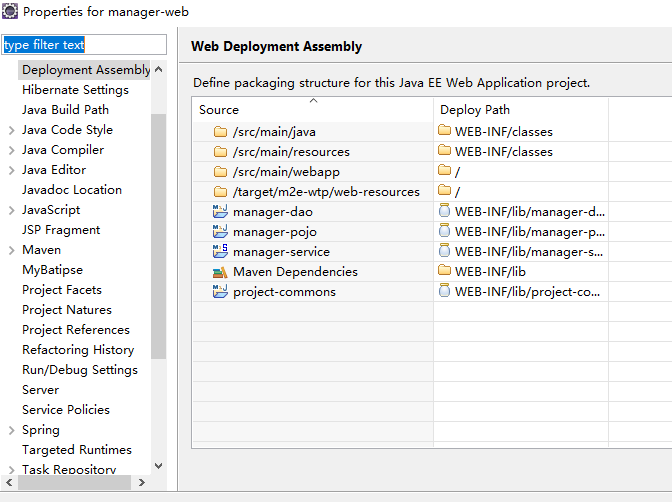重点:
- 密码加密存储
- 使用jQuery插件做校验和错误提示等
密码不能明文存储,在数据库中是加密存储的
- 可逆加密:通过密文使用解密算法得到明文 DES AES
- 不可逆加密:通过密文,得不到明文 MD5 SHA-1 SHA-2
MD5优点:压缩性,长度固定;容易计算;抗修改性;强抗碰撞;MD5加盐值加密码
一、公司的工具类中加入MD5
project-commons下

创建MD5Util.java
package com.atguigu.project; import java.security.MessageDigest; public class MD5Util { public static String digest16(String inStr) { return digest(inStr, 16); } public static String digest(String inStr) { return digest(inStr, 32); } private static String digest(String inStr, int rang) { MessageDigest md5 = null; if ( MyStringUtils.isEmpty(inStr) ) { return ""; } try { md5 = MessageDigest.getInstance("MD5"); } catch (Exception e) { e.printStackTrace(); return ""; } char[] charArray = inStr.toCharArray(); byte[] byteArray = new byte[charArray.length]; for (int i = 0; i < charArray.length; i++) { byteArray[i] = (byte) charArray[i]; } byte[] md5Bytes = md5.digest(byteArray); StringBuilder hexValue = new StringBuilder(); for (int i = 0; i < md5Bytes.length; i++) { int val = ((int) md5Bytes[i]) & 0xff; if (val < 16) hexValue.append("0"); hexValue.append(Integer.toHexString(val)); } if ( rang == 32 ) { return hexValue.toString(); } else { return hexValue.toString().substring(8, 24); } } public static void main(String args[]) { String s = new String("admin"); System.out.println(digest(s)); } }
MyStringUtils
package com.atguigu.project; public class MyStringUtils { public static boolean isEmpty(String str) { if (str == null) { return true; } if (str.trim().equals("")) { return true; } return false; } }
业务中使用MD5加密:
1.将用户输入的用户密码拿到
2.去数据库查询用户,使用用户带来的用户名和加密后的密码进行查询
二、使用jQuery插件做校验和错误提示
jQuery Validate 插件为表单提供了强大的验证功能,让客户端表单验证变得更简单,同时提供了大量的定制选项,满足应用程序各种需求。该插件捆绑了一套有用的验证方法,包括 URL 和电子邮件验证,同时提供了一个用来编写用户自定义方法的 API。所有的捆绑方法默认使用英语作为错误信息,且已翻译成其他 37 种语言。
该插件是由 Jörn Zaefferer 编写和维护的,他是 jQuery 团队的一名成员,是 jQuery UI 团队的主要开发人员,是 QUnit 的维护人员。该插件在 2006 年 jQuery 早期的时候就已经开始出现,并一直更新至今。目前版本是 1.14.0。
访问 jQuery Validate 官网,下载最新版的 jQuery Validate 插件
使用:引入jQuery和jQuery Validate
<script type="application/javascript" src="yourpath/jquery-3.2.1.min.js"></script>
<script type="application/javascript" src="yourpath/jquery.validate.js"></script>
rules指定校验规则
messages指定报错信息
举例:
<!DOCTYPE html> <html> <head> <meta charset="utf-8" /> <title></title> <script type="application/javascript" src="js/jquery-3.2.1.min.js"></script> <script type="application/javascript" src="plugin/jquery-validation-1.13.1/dist/jquery.validate.js"></script> </head> <body> <form class="cmxform" id="commentForm" method="get" action=""> <fieldset> <legend>Please provide your name, email address (won't be published) and a comment</legend> <p> <label for="cname">Name (required, at least 2 characters)</label> <input id="cname" name="name" minlength="2" type="text" required> </p> <p> <label for="cemail">E-Mail (required)</label> <input id="cemail" type="email" name="email" required> </p> <p> <label for="curl">URL (optional)</label> <input id="curl" type="url" name="url"> </p> <p> <label for="ccomment">Your comment (required)</label> <textarea id="ccomment" name="comment" required></textarea> </p> <p> <input class="submit" type="submit" value="Submit"> </p> </fieldset> </form> </body> <script> $.validator.setDefaults({ submitHandler: function() { alert("submitted!"); } }); $().ready(function() { $("#commentForm").validate({ rules: { name: "required", email: { required: true, email: true } }, messages: { name:{ required:"名字是必须的", }, email: { required: "邮箱是必须的", email: "邮箱格式必须是合法的" } } }); }); </script> </html>
rules指定规则,name: "required"意为name是必须的,当有多条规则的时候使用大括号,email字段是必须的,且要检查email格式
rules: {
name: "required",
email: {
required: true,
email: true
}
}
messages是错误信息,与上面的rules相对应
messages: {
name:{
required:"名字是必须的",
},
email: {
required: "邮箱是必须的",
email: "邮箱格式必须是合法的"
}
}
三、用户登陆和注册界面
将css和js的引入统一放到WEB-INF的includes文件夹下,所有页面共用的css和js聚集在一起,各页面独有的则存放在各个页面

js-file.jsp
<%@ page language="java" contentType="text/html; charset=UTF-8" pageEncoding="UTF-8"%> <script src="${ctp}/jquery/jquery-2.1.1.min.js"></script> <script src="${ctp}/plugin/bootstrap-3.3.7/js/bootstrap.min.js"></script> <script src="${ctp}/script/docs.min.js"></script> <script src="${ctp}/script/back-to-top.js"></script>
<!-- --------随着项目不断增加 -->
<script src="${ctp}/plugin/jquery-validation-1.13.1/dist/jquery.validate.min.js"></script>
css-file.jsp
<%@ page language="java" contentType="text/html; charset=UTF-8" pageEncoding="UTF-8"%> <link rel="stylesheet" href="${ctp}/plugin/bootstrap-3.3.7/css/bootstrap.min.css"> <link rel="stylesheet" href="${ctp}/css/font-awesome.min.css"> <link rel="stylesheet" href="${ctp}/css/login.css">
<link rel="stylesheet" href="${ctp}/css/main.css">
在各页面需要引入js和css的地方分别使用:
<%@include file="/WEB-INF/includes/js-file.jsp" %>
<%@include file="/WEB-INF/includes/css-file.jsp" %>
JSP指令(directive)是为JSP引擎而设计的,它们并不直接产生任何可见输出,而只是告诉引擎如何处理JSP页面中的其余部分。
JSP指令的基本语法格式:
<%@ 指令 属性名="值" %>include指令
include指令用于通知JSP引擎在翻译当前JSP页面时将其他文件中的内容合并进当前JSP页面转换成的Servlet源文件中,这种在源文件级别进行引入的方式称之为静态引入,当前JSP页面与静态引入的页面紧密结合为一个Servlet。
语法:
<%@ include file="relativeURL"%>
其中的file属性用于指定被引入文件的相对路径。
在index.jsp中配置登陆和注册页面的url
<ul class="nav navbar-nav navbar-right"> <li><a href="${ctp}/login.jsp">登录</a></li> <li><a href="${ctp}/reg.jsp">注册</a></li> </ul>
同时也配置login.jsp和reg.jsp中的相关链接
四、管理员用户注册
注册的流程:
来到注册页面--->输入表单内容--->js插件校验--->来到控制器处理注册请求--->调用UserService的注册方法--->UserMapper给数据库中保存东西--->注册完跳转到管理员控制台
注册页面找到注册表单
表单有action指向
method是post
<form id="regForm" class="form-signin" role="form" action="${ctp }/permission/user/reg" method="post"> ... </div> <a id="submitBtn" class="btn btn-lg btn-success btn-block" > 注册</a> </form> </div> <%@include file="/WEB-INF/includes/js-file.jsp" %> <script type="text/javascript"> $("#submitBtn").click(function () { $("#regForm").submit(); return false; }); </script>
action 属性规定当提交表单时,向何处发送表单数据
action="${ctp }/permission/user/reg",因此点击提交后会将表单数据发送给/manager-web/permission/user/reg
在web控制器里
分层,后台有很多功能
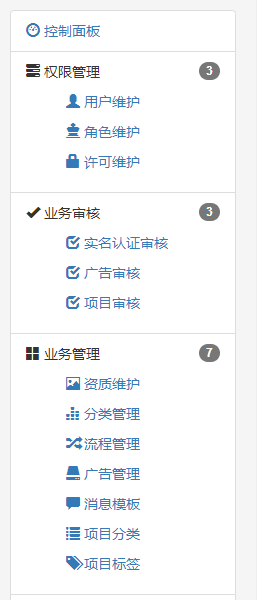
controller中根据功能分包
权限
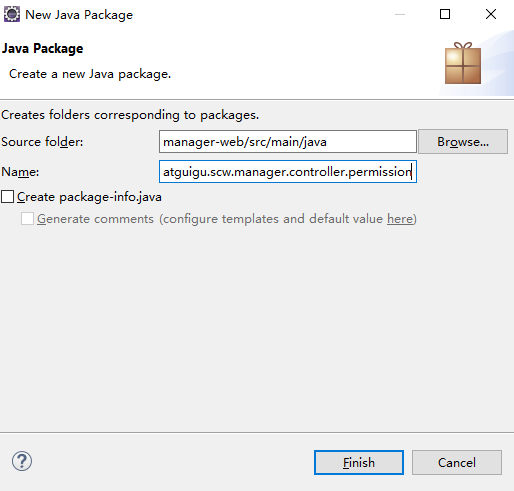
业务审核
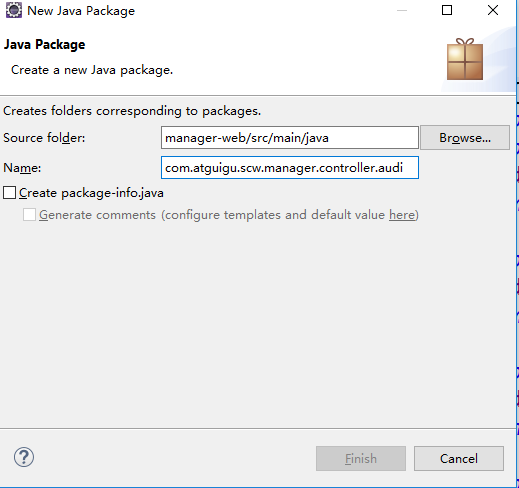
业务管理
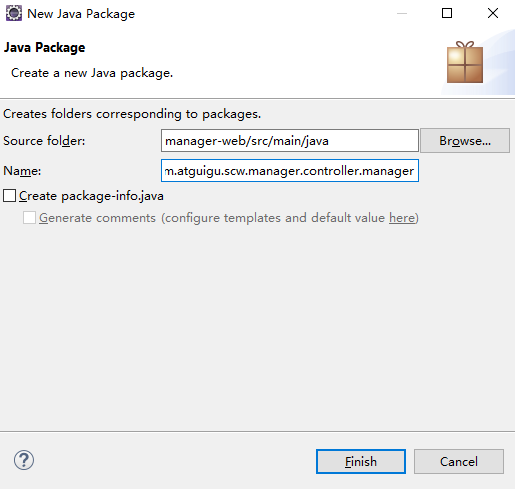
参数管理
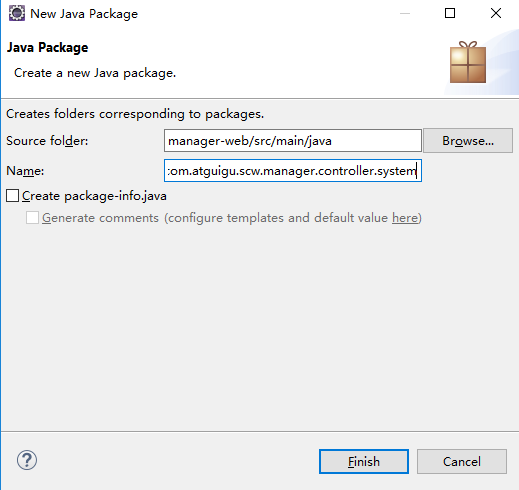
我们将处理上面注册请求的功能放在permission下,接收并响应上面的请求
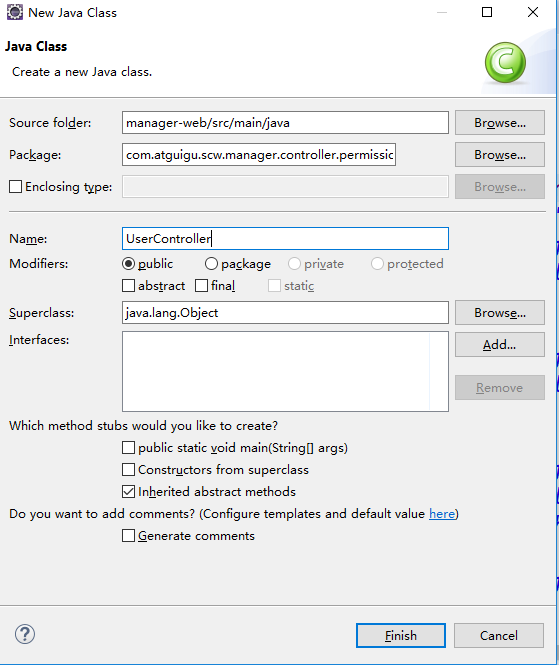
处理注册请求
超详细 Spring @RequestMapping 注解使用技巧
项目部属对应的path
从上面可知webapp在根路径下
@RequestMapping("/permission/user") 正是上面发送数据的地址
package com.atguigu.scw.manager.controller.permission; import org.springframework.stereotype.Controller; import org.springframework.web.bind.annotation.RequestMapping; import com.atguigu.scw.manager.bean.TUser; //处理所有/permission/user下的请求 @RequestMapping("/permission/user") @Controller public class UserController { private String manager = "manager/"; /** * */ // /permission/user/reg @RequestMapping("/reg") public String reg(TUser user) { System.out.println("用户注册..."); // 1.注册成功后来到控制面板页面 return "manager/main"; } }
return "manager/main"
实际访问的是/manager-web/WEB-INF/jsps/manager/main.jsp
为什么能访问到呢?因为我们在SpringMVC中配置了解析器
<!--2、视图解析器 --> <bean class="org.springframework.web.servlet.view.InternalResourceViewResolver"> <property name="prefix" value="/WEB-INF/jsps/"></property> <property name="suffix" value=".jsp"></property> </bean>
controller方法返回字符串可以指定逻辑视图名,通过视图解析器解析为物理视图地址。因此,根据上面的前后缀配置,manager/main解析为/manager-web/WEB-INF/jsps/manager/main.jsp
控制台页面不是直接能够访问的,不放在webapp,放在WEB-INF的jsps下的manager中
manger存放管理员的页面
下面又包含permission、audi、serviceman、system文件夹,分别对应权限管理、业务审核、业务管理、参数管理
将main.jsp放在manager下
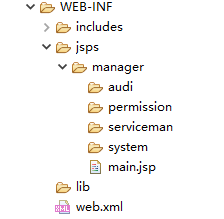
五、表单校验
设置下注册页面的表单
校验插件拷贝到plugin文件夹下
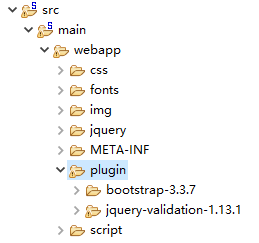
修改reg.jsp
... <div class="container"> <form id="regForm" class="form-signin" role="form" action="${ctp }/permission/user/reg" method="post"> <h2 class="form-signin-heading"><i class="glyphicon glyphicon-log-in"></i> 用户注册</h2> <div class="form-group has-success has-feedback"> <input type="text" name="loginacct" class="form-control" id="loginacct_input" placeholder="请输入登录账号" autofocus> <span class="glyphicon glyphicon-user form-control-feedback"></span> </div> <div class="form-group has-success has-feedback"> <input type="password" name="userpswd" class="form-control" id="userpswd_input" placeholder="请输入登录密码" style="margin-top:10px;"> <span class="glyphicon glyphicon-lock form-control-feedback"></span> </div> <div class="form-group has-success has-feedback"> <input type="text" name="email" class="form-control" id="email_input" placeholder="请输入邮箱地址" style="margin-top:10px;"> <span class="glyphicon glyphicon glyphicon-envelope form-control-feedback"></span> </div> <div class="form-group has-success has-feedback"> <select class="form-control" > <option>会员</option> <option>管理</option> </select> </div> <div class="checkbox"> <label> 忘记密码 </label> <label style="float:right"> <a href="${ctp}/login.jsp">我有账号</a> </label> </div> <a id="submitBtn" class="btn btn-lg btn-success btn-block" > 注册</a> </form> </div> <%@include file="/WEB-INF/includes/js-file.jsp" %> <script type="text/javascript"> $("#submitBtn").click(function () { $("#regForm").submit(); return false; }); $("#regForm").validate({ rules:{ loginacct:{ required: true, minlength: 6 }, userpswd: { required: true, minlength: 6 }, email: { required: true, email: true } }, messages:{ loginacct:{ required: "请填写用户账号", minlength: "登陆账号必须是6位以上" }, userpswd: { required: "请填写密码", minlength: "密码必须是6位以上" }, email: { required: "请填写邮箱", email: "请输入正确的邮箱" } } }); </script> ...
运行
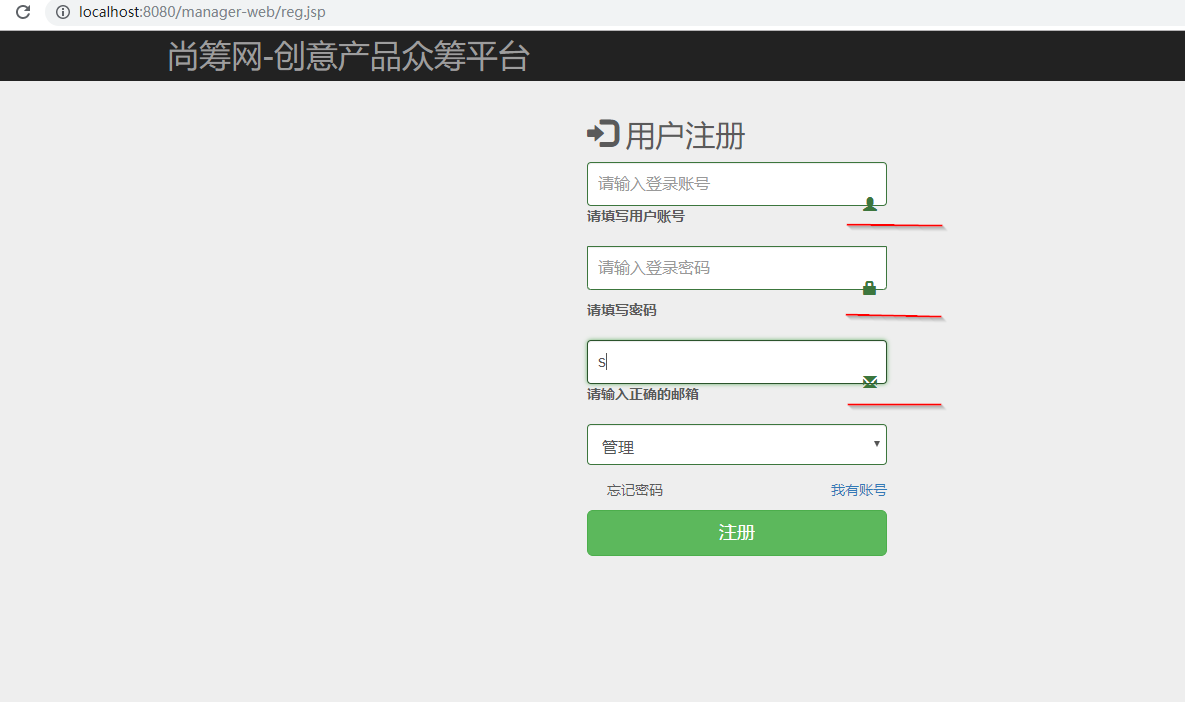
可以发现图标因为显示提示信息位置有点错乱
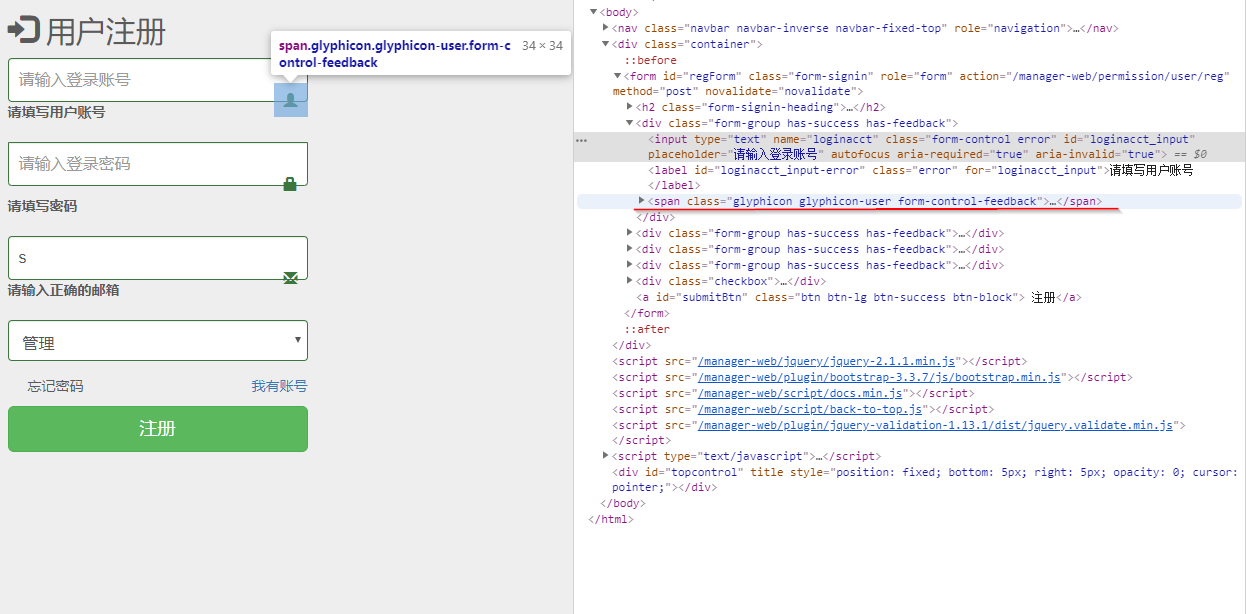
可以想办法把提示信息放在图标的下边
自定义错误显示
<script type="text/javascript"> //给校验器设置一些策略 $.validator.setDefaults({ showErrors:function(map, list) { //console.log(map); //console.log(list); //将每个元素自己的错误信息显示在自己的图标下 //先清除所有错误;清状态 $(".errorinfo").empty(); $(".form-group").removeClass("has-success has-error has-warning") $.each(list,function(){ //当前发生错误的详细信息; //element当前错误元素 //错误信息 $(this.element).nextAll(".errorinfo").text(this.message); //改变input的状态; $(this.element).parent("div.form-group").addClass("has-error") }) } });
...
showErrors:function(map, list)
map和list

map封装了每个字段的错误信息
element是错误信息的元素
在图标下面加一个span用来显示错误信息
<span class="errorinfo" style="color: red"></span>
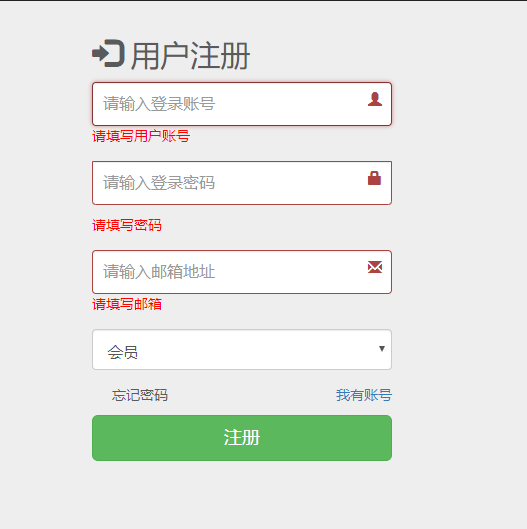
bootstrap 中的 表单
<form> <div class="form-group has-success has-feedback"> <input type="text" class="form-control" name="loginaccount" id="login_account" placeholder="请输入登录账号" autofocus> <span class="glyphicon glyphicon-user form-control-feedback"></span> <span class="errorinfo" style="color: red"></span> </div> <div class="form-group has-success has-feedback"> <input type="text" class="form-control" name="loginpassword" id="login_password" placeholder="请输入登录密码" style="margin-top:10px;"> <span class="glyphicon glyphicon-lock form-control-feedback"></span> <span class="errorinfo" style="color: red"></span> </div> <div class="form-group has-success has-feedback"> <input type="text" class="form-control" name="loginemail" id="login_email" placeholder="请输入邮箱地址" style="margin-top:10px;"> <span class="glyphicon glyphicon glyphicon-envelope form-control-feedback"></span> <span class="errorinfo" style="color: red"></span> </div> </form>1.Textual form controls—like
<input>s,<select>s, and<textarea>s—are styled with the.form-controlclass.2.表单状态验证
Bootstrap 对表单控件的校验状态,如 error、warning 和 success 状态,都定义了样式。
使用时,添加.has-warning、.has-error或.has-success类到这些控件的父元素即可。
任何包含在此元素之内的.control-label、.form-control和.help-block元素都将接受这些校验状态的样式。3.has-error 优先级高于has-warning高于has-success
4.has-feedback
Feedback icons only work with textual
<input class="form-control">elements类名"has-feedback"要与"has-error"、"has-warning"、"has-success"配合使用。
使用 span 设置图标<span class="glyphicon glyphicon-user form-control-feedback"></span>
注册分会员注册和管理员注册
修改下reg.jsp中提交时的js
$("#submitBtn").click(function () {
var loginType = $("select.form-control").val();
if(loginType == "管理"){
$("#regForm").submit();
}else{
alert("此功能尚未开通")
}
return false;
});
在表单提交的UserController中编写注册的逻辑
//处理所有/permission/user下的请求 @RequestMapping("/permission/user") @Controller public class UserController { private String manager = "manager/"; @Autowired UserService userService; /** * */ // /permission/user/reg @RequestMapping("/reg") public String reg(TUser user, Model model, HttpSession session) { System.out.println("用户注册..." + user); // 1.注册成功后来到控制面板页面 // 1.注册用户 boolean flag = userService.register(user); if (flag == true) { // 1.注册成功,来到控制面板 // 用户保存的数据在user对象中,id是数据库生成的自增主键 // 需要修改mybatis的mapper文件,让其使用自动生成的id session.setAttribute(Constants.LOGIN_USER, user); return "manager/main"; } else { // 2.注册失败 model.addAttribute("regError", "用户名已经被使用"); // 3.来到页面要回显user之前输入的内容 // 4.user先从隐含模型中拿的;只要pojo,确定完值以后会自动放在隐含模型中 // 用的key是类名首字母小写${tUser.loginacct }
// 由于bean包中的类名前两个字母大写,比较特殊,这里实际使用的是TUser
return "forward:/reg.jsp"; } } }
注册失败好要回显,在reg.jsp的表格中设置用户名和邮箱的value,value="${TUser.loginacct }
<form id="regForm" class="form-signin" role="form" action="${ctp }/permission/user/reg" method="post"> <h2 class="form-signin-heading"><i class="glyphicon glyphicon-log-in"></i> 用户注册</h2> <div class="form-group has-success has-feedback"> <input type="text" name="loginacct" class="form-control" id="loginacct_input" placeholder="请输入登录账号" value="${TUser.loginacct }" autofocus> <span class="glyphicon glyphicon-user form-control-feedback"></span> <span class="errorinfo" style="color: red"></span> </div> <div class="form-group has-success has-feedback"> <input type="password" name="userpswd" class="form-control" id="userpswd_input" placeholder="请输入登录密码" style="margin-top:10px;"> <span class="glyphicon glyphicon-lock form-control-feedback"></span> <span class="errorinfo" style="color: red"></span> </div> <div class="form-group has-success has-feedback"> <input type="text" name="email" class="form-control" id="email_input" placeholder="请输入邮箱地址" value="${TUser.email }" style="margin-top:10px;"> <span class="glyphicon glyphicon glyphicon-envelope form-control-feedback"></span> <span class="errorinfo" style="color: red"></span> </div>
低级错误
@RequestMapping("reg") public String reg(TUser user, Model model, HttpSession session){ System.out.println("用户注册"); UserService userService = new UserServiceImpl(); Boolean flag = userService.register(user); if (flag == true){ session.setAttribute(Constants.LOGIN_USER, user); return "manager/main"; }else { model.addAttribute("regError", "注册失败"); return "forward:/reg.jsp"; } }自己新建对象,然后调用方法,而register中使用了 @Autowired 注解,这回导致方法调用失败,报空指针异常,方法中的bean为null
自己新建对象,Spring不会管理,无法调用Spring容器中的实例,所以为null
还有一种bean为null的情况
静态方法调用了bean,但是由于spring的加载机制,是加载静态代码-》构造函数-》注入bean-》postconstuct的顺序执行,因此静态方法里调用的bean,并没有注入相应的bean,因此为空,所以会出现bean为null的情况
由于bean起名的时候前两个字母都是大写,因此页面中要和类名相同,即TUser,而不是常用的tUser
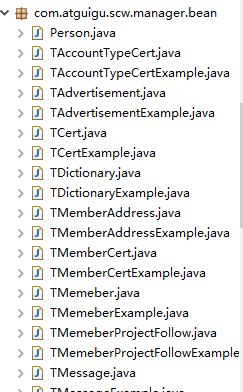
上面用到了UserService的register方法和Constants.LOGIN_USER常量
编写UserService接口和实现类
package com.atguigu.scw.manager.service; import com.atguigu.scw.manager.bean.TUser; public interface UserService { public boolean register(TUser user); }
package com.atguigu.scw.manager.service.impl; import java.util.Date; import org.springframework.beans.factory.annotation.Autowired; import org.springframework.stereotype.Service; import com.atguigu.project.MD5Util; import com.atguigu.project.MyStringUtils; import com.atguigu.scw.manager.bean.TUser; import com.atguigu.scw.manager.dao.TUserMapper; import com.atguigu.scw.manager.service.UserService; @Service public class UserServiceImpl implements UserService { @Autowired TUserMapper userMapper; public boolean register(TUser user) { // 1.拿到用户信息,先加密密码 // 加密的密码 盐,这里使用了用户名 // 盐不能超过8位,因此本打算用用户名,但容易出错,这里取部分用户名 // String loginacct = user.getLoginacct(); // String salt = loginacct.substring(0, 6) + "HA"; // String crypt = Md5Crypt.md5Crypt(user.getUserpswd().getBytes()); String diget = MD5Util.digest(user.getUserpswd()); user.setUserpswd(diget); // 2.在将用户的其他信息设置默认值 // 设置昵称 创建时间 user.setUsername(user.getLoginacct()); user.setCreatetime(MyStringUtils.formatSimpleDate(new Date())); // 3.去数据库保存用户,登陆账号不能重复 int i; try { i = userMapper.insertSelective(user); } catch (Exception e) { // 保存失败的原因就是用户重复,数据库设置了Loginacct不可重复 return false; } // i影响多少行 return i == 1 ? true : false; } }
用到了MyStringUtils.formatSimpleDate(new Date())
MyStringUtils中添加方法
public static String formatSimpleDate(Date date) { SimpleDateFormat format = new SimpleDateFormat("yyyy-MM-dd"); return format.format(date); }
Constants.LOGIN_USER常量
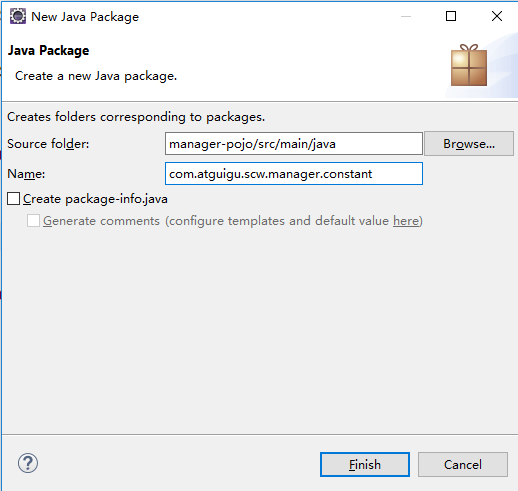

package com.atguigu.scw.manager.constant; public class Constants { public static final String LOGIN_USER = "loginUser"; }
修改下/manager-dao/src/main/resources/mybatis/mapper/TUserMapper.xml
<insert id="insertSelective" parameterType="com.atguigu.scw.manager.bean.TUser" useGeneratedKeys="true" keyProperty="id">
数据库里密码长度改为64
登陆后的控制面板,右上角显示用户名
从session中取,用loginUser
main.jsp中
<div class="btn-group"> <button type="button" class="btn btn-default btn-success dropdown-toggle" data-toggle="dropdown"> <i class="glyphicon glyphicon-user"></i> ${loginUser.username } <span class="caret"></span> </button> <ul class="dropdown-menu" role="menu"> <li><a href="#"><i class="glyphicon glyphicon-cog"></i> 个人设置</a></li> <li><a href="#"><i class="glyphicon glyphicon-comment"></i> 消息</a></li> <li class="divider"></li> <li><a href="index.html"><i class="glyphicon glyphicon-off"></i> 退出系统</a></li> </ul> </div>
